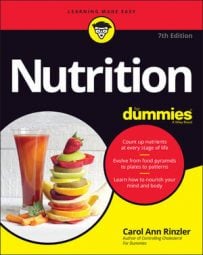Although it increases the level of serotonin, the calming neurotransmitter, caffeine also hooks up at specific receptors (sites on the surface of brain cells) normally reserved for another naturally occurring tranquilizer, adenosine (a-den-o-seen). When caffeine latches on in place of adenosine, brain cells become more reactive to stimulants such as noise and light, making you talk faster and think faster.
But caffeine can be confusing. People react to it in highly individual ways. Some can drink seven cups of regular ("with caffeine") coffee and still stay calm all day and sleep like a baby at night. Others tend to hop about on decaf. Perhaps those who stay calm have enough brain receptors to accommodate both adenosine and caffeine, or perhaps they're more sensitive to the adenosine that manages to hook up to brain cells. Nobody really knows. Either way, caffeine's bouncy effects may last anywhere from one to seven hours.
The table lists some common food sources of caffeine. The caffeine content listed here is an average for the generic versions of the food or drink — in other words, plain, no-brand products. You can check out the caffeine content of brand-name products such as a Starbucks Espresso Solo (75 mg/oz) or Ben & Jerry's coffee flavored ice cream (34 mg/4 oz) at the Center for Science in the Public Interest website.
| Food | Average Amount of Caffeine (mg) |
| 6-ounce cups | |
| Coffee, regular, drip | 71 |
| Coffee, regular, instant | 47 |
| Coffee, decaffeinated | 1 |
| Tea | 36 |
| Tea, instant | 20 |
| Cocoa (mix with water) | 4 |
| 12-ounce can | |
| Soft drinks, cola | 29 |
| 8-ounce container | |
| Chocolate milk (commercial, low-fat) | 5 |
| 1-ounce serving | |
| Milk chocolate | 6 |
| Semisweet chocolate | 24 |
| Bitter (baker's) chocolate | 23 |
USDA National Nutrient Database for Standard Reference


